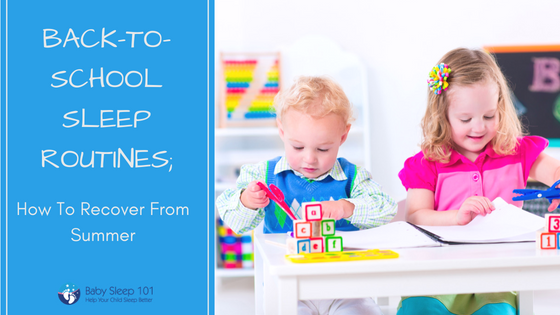This two part series was written by Sharyn Timerman from The Early Years. You can learn more about her at the end of this post.
Tools In Your Pocket
Your toddler may be moving very fast. Before you have a chance to clean up one spill, he/she is already climbing onto the table looking for more adventure.
Your 2 year old is climbing on the table, again! What makes that table so attractive and how can you get him to come down without yelling?
Your three year old is having a major tantrum because you have said no to “cookie no.4!” Do you give in? Do you fear the next outburst?
Your 4 year olds playroom looks like a major windstorm swept through your home. Are you daydreaming about the day you will not repeat yourself 10 times to “clean up that mess or else…”
What if you had just the perfect “Tool” that could magically change behaviors?
What are “Tools in your pocket?”
When a situation is out of control, the in-laws are watching with a critical eye or a variety of other scenarios ,“Tools in your pocket” simply means realistic, developmentally appropriate methods that have been proven to work. There is no pressure or time-limit. Parenting tools are for you to be used, you can keep them in your pocket, use them 20% of the time, 50%, or 80% and the more they are used, the more natural they become . Even 20% guarantees more success than not using them at all.
Workshops, internet sites, t.v. programs and parenting books, serve to plant ideas in our minds of what we can do. How does one possibly put those really great methods, those fantastic words into practice in the heat of the moment?
Here are a few guidelines and tools that you can be ready to use at any time:
Can and Can’t
When you tell a child what they cannot do, tell them what they can do. “The sand is not for throwing, you can put it in the bucket or you can run your truck through it but you cannot throw the sand.” “Hands are not for hitting, you can be angry, you can stamp your feet but you cannot hit”.
Clear Instructions
Understand what it is you have to do. Be ready, sometimes we need to feel desperate to make a change. If you want your 4 year old to clean up their toys, let them know what you expect. Sometimes it is overwhelming for them when surrounded by a big mess. Give them clear instruction: “You pick up the red and yellow lego and I will pick up the blue and green”.
Silence is Golden
Sometimes silence is a good thing. Don’t make empty threats. Better to do nothing than not follow through.
Follow Through
If you warn your toddler that if he throws the sand again he is coming out of the sandbox, you are setting him up to “fail”. Children need to see that you know what you are doing. They will certainly throw that sand again when told not to. Here’s what you can do: Give him the information he needs.” “Sand is not for throwing, you can put it in your bucket”. Then your little guy throws it again. You say “I see you’re having trouble remembering, today the sandbox is finished, you get to try again tomorrow”.
Consistency is Key
Be consistent, say what you mean, mean what you say . If you take him out of the sandbox, don’t be blackmailed by his screams. Just leave the sandbox and go home.
Logical consequences
The consequence needs to “match the crime”. That means coming up with something that teaches and does not shame. Consequences should be reasonable, fair and logical.
If a child writes on the wall with crayons, we don’t say, “No books at bedtime” or “Go sit on the stairs”. This may be unfruitful since there is no teaching going on. Instead we can say, “Here’s the sponge. Start cleaning and I will keep the crayons in a place where they won’t be used for the wall.” The good news is that you can always present them with the crayons a week later and let them know they can try again.
Stay tuned for Part Two!
About Sharyn
Sharyn Timerman is Founder and Owner of The Early Years Family Development Centre Inc. Created in 1996, Sharyn specializes in the understanding of Early childhood behaviors. She works with young children in the home, staff training in the daycare system, private counseling for parents, evening seminars for couples, and a variety of workshops known as “Tools in your pocket”. She is a facilitator for women’s groups.
Sharyn is a faculty member of the Family Sleep Institute providing continuing education in the understanding of developmental stages of young children. In August 2012, entering into a new partnership, “The Parenting Toolbox” was formed providing more services to the community and beyond, reaching other parts of Canada and the United States. Sharyn received her degree in Early Childhood Education from Vanier College, Montreal, Quebec while raising 3 children with her husband.















